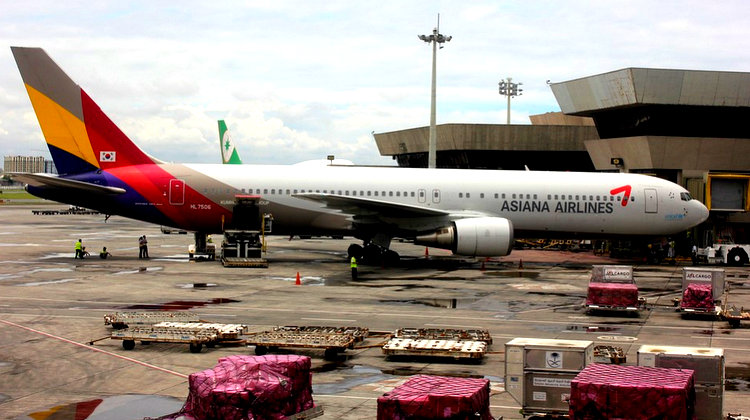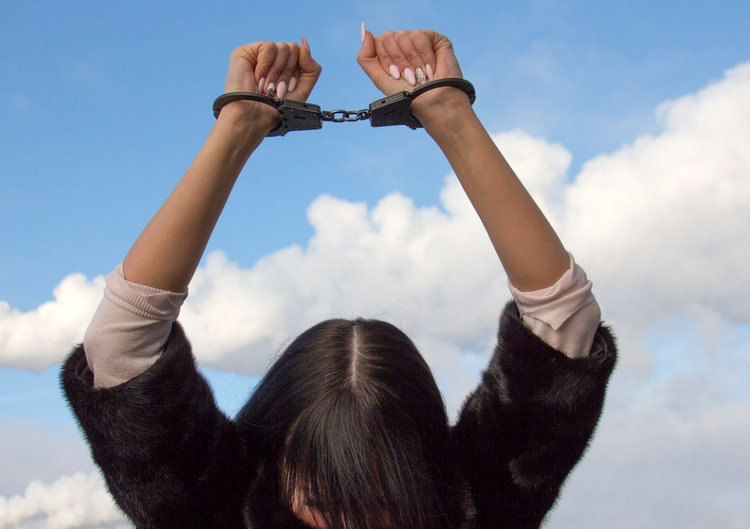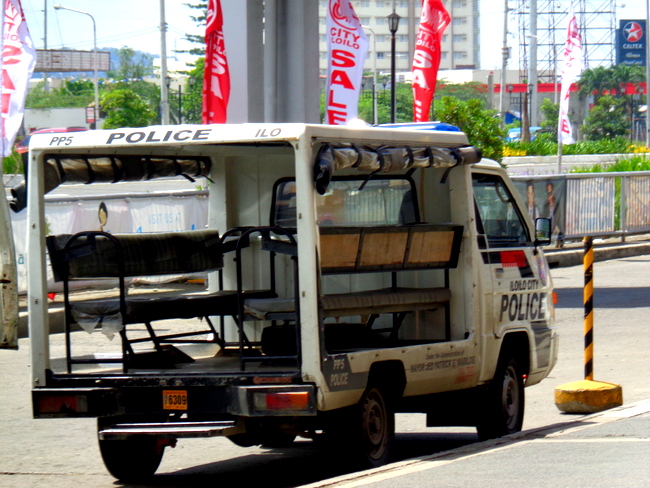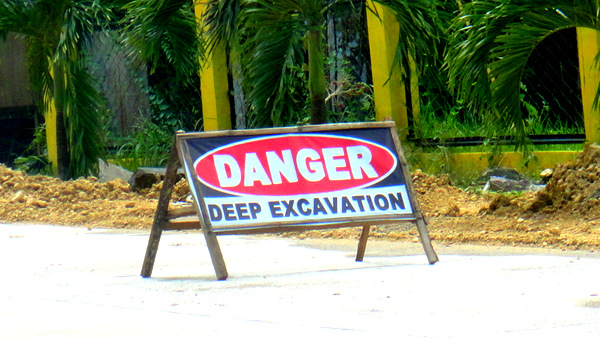What You Should Know Before Moving to the Philippines
10. You may only bring up to 10,000 USD into or out of the Philippines.
A person may only carry up to the amount of USD 10,000 (or equivalent in any other foreign currency), in cash or other monetary instruments, into and out of the Philippines.
Other monetary instruments include travelers’ checks, other checks, drafts, notes, money orders, bonds, deposit certificates, securities, commercial papers, trust certificates, custodial receipts, deposit substitute instruments, trading orders, transaction tickets, and confirmation of sale/investment.
That information comes courtesy of the Philippine Embassy.[i]
Furthermore, if you do bring more than $10,000 into the Philippines, Immigration officials can confiscate your cash.
I knew of a foreigner who claims he brought in more than $20,000. Hence, he didn’t declare the extra money when coming into the Philippines and could have had all his money taken away from him.
While one can bring in more than 10,000, it has to be declared. The following form, “Foreign Currency and Other Foreign Exchange-Denominated Bearer Monetary Instruments Declaration Form,” MUST BE FILLED OUT. This regulation is intended to stem the tide of international money laundering. In addition, it also aims to hinder the financing of international terrorism.

9. All persons and baggage are subject to a search at any time.
In addition, the following items are prohibited or regulated in the Philippines:
Prohibited and Regulated Articles
- marijuana, cocaine or any other narcotics or synthetic drugs,
- firearms and explosives and parts thereof, gun replicas,
- obscene or immoral articles,
- adulterated or misbranded articles of food or drugs,
- gambling outfits and paraphernalia,
- used clothing and rags,
- elephant / ivory tusk products
- those which violate the Intellectual Property Rights Code, R.A. 8293 (i.e., DVDs, VCDs, other imitation products)
- animals, fish and plant products, or their by-products (such as meat, eggs, birds, fruits, etc.)

8. Extreme Cyber Libel Laws
In December 2020, Rappler CEO Maria Ressa was charged for the second time with cyber libel over her Twitter post where she shared a news website’s article on businessman Wilfredo Keng.[ii]
Rappler is an online news publication based in the Philippines. Maria Ressa is a Filipino-American journalist and author, and co-founder and CEO of Rappler.
She previously spent nearly two decades working as a lead investigative reporter in Southeast Asia for CNN.
Wilfredo “Willy” Dy Keng is president of at least seven companies as of February 2019.
In 2010, Forbes listed him among the Philippines’ 40 richest with an estimated worth of $US100 million.
In June 15, 2020, a Manila court convicted Maria Ressa and Reynaldo Santos, a former researcher at the outlet, of cyber libel over a 2012 investigative article that reported on Keng’s alleged connection to illegal activities.[iii]
The criminal offense requires each journalist to pay $7,950 in fines and moral damages as well as serve a jail term of six months to six years. Both are free on bail pending their appeal.
The high-profile case made international headlines as opposition groups and human rights advocates see it as part of government’s crackdown against media critical of President Rodrigo Duterte.
In addition, a survey completed in June 2019 found that 51% of Filipinos agreed with the statement: “It is dangerous to print or broadcast anything critical of the administration, even if it is the truth.”
Maria Ressa made history on December 10, 2021, as the first Filipino to receive the Nobel Peace Prize.

7. Anti-Terrorism Law is Potentially Dangerous
According to Wikipedia[iv], the Anti-Terrorism Act of 2020, Republic Act No. 11479, is a Philippine law whose intent is to prevent, prohibit, and penalize terrorism in the Philippines. The law became effective on July 3, 2020.
However, critics of the new law believe that the new act could possibly target political opponents.
The law creates a body, appointed by the President, the Anti-Terrorism Council (ATC), which would designate the persons who could be arrested as “terrorists.”
Because of other provisions of the law, these persons could face up to 24 days (14 days with a possible 10-day extension) in jail.
The law allows suspects to be put into custody without a warrant of arrest.
The law faced dozens of challenges and petitions before the Philippines’ Supreme Court. The Philippines’ Supreme Court largely upheld the anti-terrorism law in a December 2021 decision.

6. Participating in Political Activity
Immigration Commissioner Jaime Morente said foreigners do not have the right to attend mass demonstrations for or against the Philippine government. Doing so may lead to their arrest and deportation. Such rights, he said, are for Filipinos only.
“A visitor of a country is allowed to stay here for health, business, or pleasure. Joining rallies and protests is an utter display of disrespect to the country, and is equivalent to meddling in our internal affairs as a sovereign nation,” he said in a statement.
Morente cited BI Operations Order No. SBM 2015-025 that “prohibits foreigners from engaging in any political activity as defined by law and jurisprudence, such as but not limited to, joining, supporting, contributing or involving themselves in whatever manner in any rally, assembly or gathering, whether for or against the government.”

“Foreigners who join mass actions are violating the conditions of their stay. If found guilty, we will blacklist these foreigners, effectively barring them from re-entering the country,” Morente pointed out in an article from the Inquirer.net.[v]
Furthermore, an Australian nun, Sister Patricia Fox, had to leave the Philippines in 2018 for speaking out against President Duterte’s war on drugs. She had been in the Philippines for decades. Don’t participate in any protests. You risk making Immigration’s blacklist.
5. Corrupt Police
Police have been accused of receiving cash payments for executing drug suspects. They’ve been blamed for evidence planting on suspects. They also have been arrested for the kidnapping of businessmen for ransom.
Police have been accused of raping females whom did not have a quarantine pass in exchange for letting them through pandemic checkpoints.
A report published on Reuters[vi] claims that members of the Philippine National Police have been also been paid to kill not just drug suspects, but also – for 10,000 pesos ($200) a head for the following:
- rapists,
- pickpockets,
- swindlers,
- gang members,
- alcoholics, and other “troublemakers.”
According to the report, the cash “reward scales” for drug killings range from 20,000 pesos ($400) for a “street level pusher and user.”
A 50,000 peso bounty for a member of a neighborhood council.
One million pesos for “distributors, retailers, and wholesalers.”
Five million pesos for “drug lords.”
While I’ve had good relations with most of the police officers on our island province of Guimaras, it’s good to be on your guard, especially in Metro Manila.
In addition, I personally believe most of the law enforcement officers are doing their job and keeping the peace.
However, like in most any profession, there are corrupt and evil individuals.

4. Massive Infrastructure Problems in the Philippines
In recent years, before the coronavirus pandemic, the Philippines had been one of Asia’s fastest-growing economies, but problems with infrastructure could hold the country back. According to a recent World Economic Forum Global Competitiveness Report, infrastructure problems are among the leading economic obstacles the country faces. What does that mean to expats?
Depending on where you live, you could experience power failures, prolonged water shortages, outdated telecommunication systems, and deteriorating bridges and roads.
We still experience regular power outages on our island province of Guimaras, although the situation has improved over the past year. Don’t expect Western-style facilities in the Philippines.
3. Is that new love actually single? Check out her status with CENOMAR.
A Certificate of No Marriage Record (CENOMAR.) A CENOMAR is a certification from the Philippine Statistic Authority stating that a person is not already legally married. Also called a certificate of No Record of Marriage or Certificate of Singleness.
Make sure that Filipina you just met online is single. There are no divorce laws in the Philippines. Getting a lengthy and expensive annulment is your only option if she already has a husband.
2. Be aware that adultery is a crime punishable by prison time in the Philippines.
Would you care to spend up to six years in a Philippines jail? Commit adultery.
It’s a crime in the Philippines. People still go to jail for it
1. Don’t buy, sell, use, or grow weed in the Philippines.
It’s illegal to sell, smoke, or use any form of marijuana in the Philippines. While using pot in your home country might be legal, it’s not OK to use it in the Philippines. Marijuana is classified as a dangerous drug under the Comprehensive Dangerous Drugs Act of 2002, or Republic Act 9165.
However, if you care to spend several years in a Filipino jail, go ahead. It’s your funeral.
Remember, you’re a guest in the Philippines. Beware of existing laws and regulations and follow them.
Don’t be a jackass and act like you know everything, you don’t.
Frankly, if you can’t adapt to the culture and customs of the Philippines, you probably should stay put. You’ll save yourself a lot of time and frustration.
[i] Philippine Embassy Singapore Bringing Currency into the Philippines
Retrieved from https://www.philippine-embassy.org.sg/the-philippines-2/bringing-currency-into-the-philippines/#:~:text=A%20person%20may%20carry%20up,and%20out%20of%20the%20Philippines.
[ii] Elmore Santos (2020, December 3) Maria Ressa again charged with cyber libel, seeks case dismissal Retrieved from https://cnnphilippines.com/news/2020/12/3/Maria-Ressa-second-cyber-libel-case.html
[iii] Forbes Staff (2020, July 1) Convicted Journalist Maria Ressa, Who Faces Up To 60 Years In Prison, Tops July Ranking Of One Free Press Coalition’s “10 Most Urgent” Press Freedom Cases Retrieved from https://www.forbes.com/sites/forbespr/2020/07/01/convicted-journalist-maria-ressa-who-faces-up-to-60-years-in-prison-tops-july-ranking-of-one-free-press-coalitions-10-most-urgent-press-freedom-cases/?sh=1af7133422b4
[iv] Wikipedia Anti-Terrorism Act of 2020 Retrieved from https://en.wikipedia.org/wiki/Anti-Terrorism_Act_of_2020#:~:text=The%20Anti%2DTerrorism%20Act%20of,2007%20on%20July%2018%2C%
[v] Cathrine Gonzales (2020, February 25) Bureau of Immigration to foreigners: Keep off mass demos, rallies Retrieved from https://newsinfo.inquirer.net/1233061/fwd-immigration-reminds-foreigners-keep-off-protests
[vi] Manuel Mogato, Clare Baldwin (2017, April 18) Special Report: Police describe kill rewards, staged crime scenes in Duterte’s drug war Retrieved from https://www.reuters.com/article/us-philippines-duterte-police-specialrep/special-report-police-describe-kill-rewards-staged-crime-scenes-in-dutertes-drug-war-idUSKBN17K1F4
